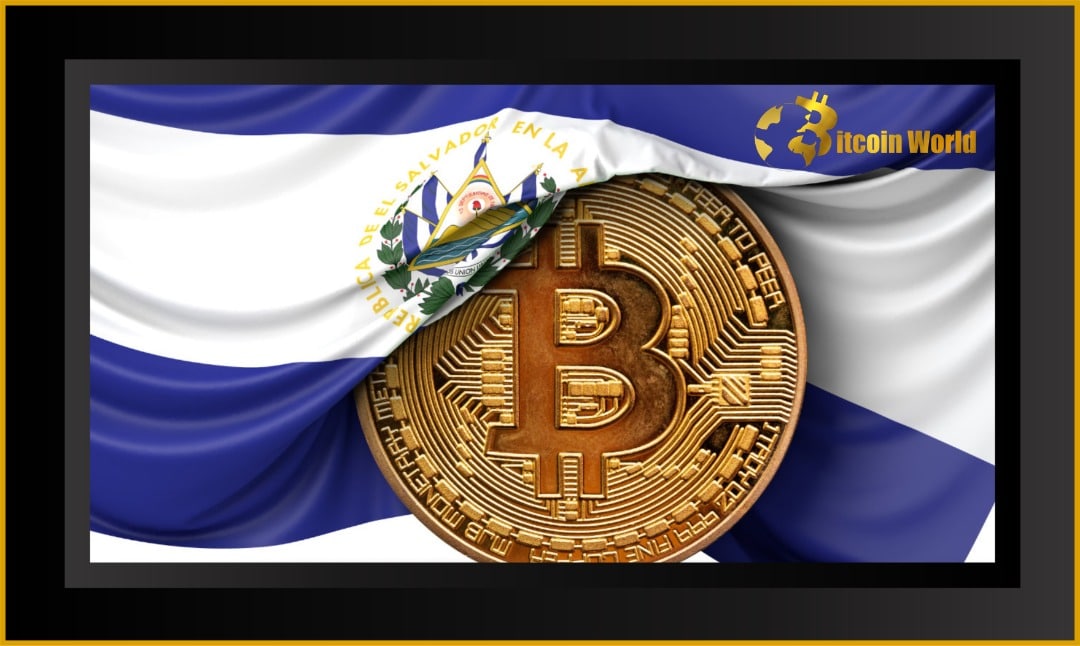El Salvador’s bold move to embrace Bitcoin as legal tender has sent ripples across the globe, sparking debates and raising eyebrows in equal measure. While some hail it as a revolutionary step towards financial freedom, others are sounding alarm bells about the potential risks. Now, the United States is stepping into the conversation, questioning whether El Salvador’s crypto experiment could have repercussions beyond its borders.
Is El Salvador’s Bitcoin Adoption a ‘Reckless Gamble’ or a Visionary Leap?
Congresswoman Norma J. Torres, representing California’s 35th District, doesn’t seem to be in the ‘visionary leap’ camp. On April 5th, she, along with Congressman Rick Crawford, introduced the Accountability for Cryptocurrency in El Salvador (ACES) Act. This isn’t just a casual observation; it’s a formal move to assess and potentially mitigate what they perceive as threats stemming from El Salvador’s Bitcoin strategy.
Congresswoman Torres didn’t mince words, calling El Salvador’s Bitcoin adoption a “reckless gamble” in a tweet accompanying the announcement of the ACES Act. Her statement underscores the core concern: the potential impact on the US financial system. While acknowledging El Salvador’s sovereignty, the underlying message is clear – the US wants to ensure its financial stability isn’t jeopardized by another nation’s crypto experiment.
What Exactly Does the ACES Act Aim to Do?
The ACES Act isn’t about dictating El Salvador’s policies. Instead, it’s focused on understanding and preparing for potential fallout. Here’s a breakdown of what the bill mandates:
- Risk Analysis: The State Department is tasked with conducting a thorough analysis of the risks El Salvador faces due to Bitcoin adoption. This includes evaluating:
- Cybersecurity vulnerabilities: Could Bitcoin adoption make El Salvador’s digital infrastructure more susceptible to attacks?
- Economic stability: How might Bitcoin’s volatility impact El Salvador’s economy?
- Democratic governance: Are there unforeseen impacts on El Salvador’s political system?
- Mitigation Strategy: Based on the risk analysis, the State Department must develop a strategy to protect the US financial system from any identified risks. This suggests the US is concerned about potential spillover effects from El Salvador’s Bitcoin experiment.
Why is the US Concerned About El Salvador’s Bitcoin Bet?
It’s not just the US raising concerns. The international financial community has also voiced reservations about El Salvador’s approach. Let’s look at some key points:
- IMF Warnings: The International Monetary Fund (IMF) explicitly warned El Salvador that adopting Bitcoin as legal tender posed “significant risks” to financial stability and consumer protection. This led to the IMF refusing to grant loans to El Salvador, a significant blow to the nation’s financial plans.
- Moody’s Projections: Moody’s Sovereign Risk Group estimated that El Salvador could have already lost a substantial $22 million due to Bitcoin’s price fluctuations. This highlights the real-world financial impact of Bitcoin’s volatility on a national level.
These concerns paint a picture of potential instability and financial vulnerability. The US, through the ACES Act, seems to be taking a proactive stance to ensure these risks don’t translate into problems for its own financial system.
Is This a Case of Overreach or Necessary Prudence?
The introduction of the ACES Act begs the question: Is this a necessary step to safeguard US financial interests, or is it an overreach into the sovereign decisions of another nation? There are arguments on both sides:
| Arguments for the ACES Act (Prudence) | Arguments Against the ACES Act (Overreach) |
|---|---|
|
|
Ultimately, the ACES Act reflects a growing tension between the burgeoning world of cryptocurrency and traditional financial systems and regulations. El Salvador’s experiment is being watched closely, not just by the US, but by the entire global financial community. The outcome of the ACES Act and the continued journey of El Salvador with Bitcoin will undoubtedly shape the future of cryptocurrency adoption and regulation worldwide.
Related Posts – XRP Price Goes Up After Unexpected Reappearance On Coinbase
Disclaimer: The information provided is not trading advice, Bitcoinworld.co.in holds no liability for any investments made based on the information provided on this page. We strongly recommend independent research and/or consultation with a qualified professional before making any investment decisions.


